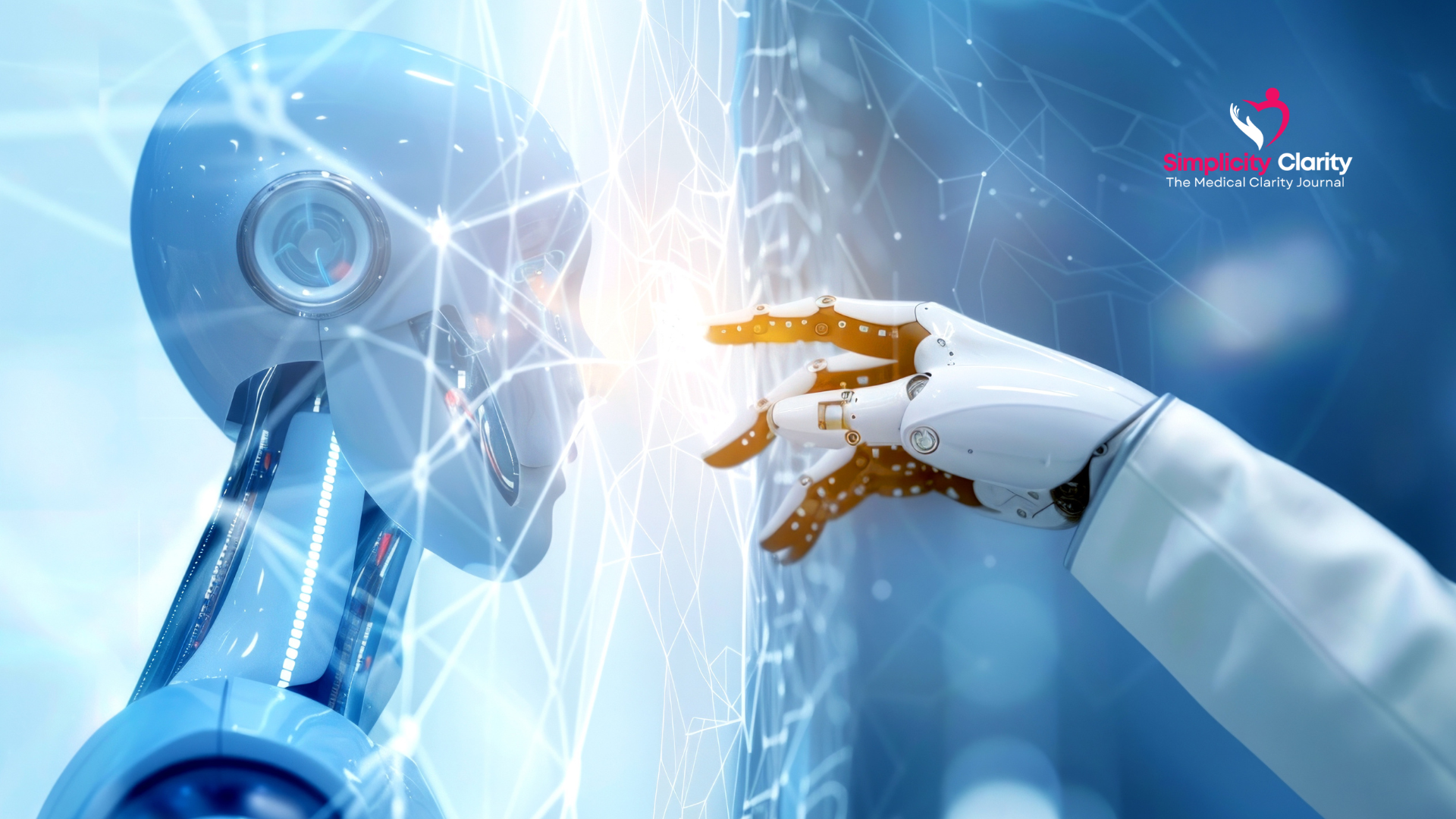Inspirational journeys
Follow the stories of academics and their research expeditions
Remote AI Healthcare Careers: Evolving Roles for Tech-Savvy Professionals

Artificial Intelligence (AI) is revolutionizing global healthcare, from diagnostics to mental health to hospital management systems. For professionals in medicine, nursing, and allied health, AI presents both challenges and transformative opportunities—especially for those willing to blend clinical skills with digital fluency. This article guides tech-savvy healthcare professionals through the emerging world of remote AI-driven roles, hybrid occupations, and future-ready skill sets.
Why AI is Transforming Healthcare
AI excels at tasks involving pattern recognition, data processing, and predictive analytics. Radiology, pathology, and diagnostics are already witnessing significant AI integration (Topol, 2019). However, what AI cannot easily replicate is the uniquely human ability to empathize, exercise ethical judgment, and consider nuanced patient narratives.
As such, the future of healthcare will not be “AI vs. Human,” but “AI + Human.”
Roles That Will Evolve – And Why
1. Clinicians (Physicians, Nurses, Therapists)
AI is increasingly used in triage, decision support, and diagnostic imaging. Rather than replacing clinicians, AI will enhance roles:
-
Virtual Rounds & Remote Monitoring: Nurses will oversee multiple patients via wearable device data.
-
Clinical AI Navigators: Doctors may use AI-generated treatment suggestions in real time.
-
Remote CBT Therapists: Therapists will guide patients through AI-powered modules, enhancing reach and reducing burnout.
2. AI-Assisted Diagnostics
Medical technologists and general practitioners will collaborate with AI to interpret scans, pathology slides, and symptom clusters with higher accuracy.
3. Virtual Care Managers
These professionals will coordinate home-based care, digital follow-ups, and preventive interventions using predictive tools and remote monitoring platforms.
4. Health Data Analysts and AI Trainers
As AI systems rely on quality data and context, new roles will include:
-
Medical coders transitioning to clinical data annotators
-
Nurses becoming AI feedback loop contributors
-
Ethicists guiding AI governance in patient care
Skills That AI Cannot Replicate
The following soft and cognitive skills remain irreplaceable:
-
Empathy & Communication: Essential in breaking bad news, therapy, and patient-centered care.
-
Ethical Reasoning: In navigating privacy, end-of-life care, and cultural sensitivity.
-
Critical Judgment: Especially when AI outputs conflict with clinical intuition.
Human-AI Collaboration: What It Looks Like
In practice, clinicians will make final decisions, supported by AI:
-
AI flags a suspicious mole, the dermatologist makes the judgment.
-
AI predicts patient deterioration, the nurse intervenes with a care plan.
-
AI suggests mental health intervention, the psychologist decides timing and modality.
These co-pilot models require practitioners who can understand, question, and validate AI suggestions—a skill known as AI interpretability literacy.
Hybrid Roles Emerging Now
| Hybrid Role | Description |
|---|---|
| AI Health Coach | Uses platforms like Lark or Babylon to manage patient wellness remotely. |
| Clinical Algorithm Curator | Trains and tunes medical algorithms using real patient scenarios. |
| Telehealth Integrator | Manages systems linking video consults, diagnostics, and e-prescriptions. |
| Digital Mental Health Facilitator | Guides therapy sessions supported by apps like Woebot or Wysa. |
???? Activities
✅ Role Evolution Mapping
Instructions: Write down your current healthcare role and list:
-
Tasks that could be automated (e.g., appointment scheduling)
-
Tasks that require human empathy or ethical input
-
New tasks you could take on with AI tools
✅ Self-Reflection Prompt
Ask yourself:
“How will my current role change with AI in the next 5 years?”
Then explore remote or hybrid job descriptions that align with that path.
Where to Find Remote AI Healthcare Jobs
Here are reliable, international platforms actively listing roles in digital and AI-enabled health careers:
Global Job Boards
-
Wellfound (formerly AngelList) – Startups hiring in health AI and telemedicine
-
FlexJobs – Curated remote healthcare roles
-
Remote OK – Remote roles including digital therapy, health informatics
-
Remotive.io – International roles in health tech
-
Indeed – Search “remote AI healthcare” globally
NGOs, Agencies, and Startups Hiring
-
Partners In Health – Digital health & data analysis roles
-
Path.org – AI and digital health innovation projects in LMICs
-
One HealthTech – Community and opportunities in ethical health tech
-
Babylon Health – Remote clinical & tech roles in AI-based primary care
-
Ada Health – Careers in digital symptom checking and AI development
Tools, Platforms & Learning Resources
| Tool/Platform | Use Case |
|---|---|
| Coursera – AI in Healthcare specialization (offered by Stanford, Duke) | |
| edX – Health Informatics & AI Ethics programs | |
| FutureLearn – Free global digital health courses | |
| AI4Healthcare – AI-specific community and resources | |
| MIT Critical Data – Open data sets for training & research | |
| LinkedIn Learning – AI, digital skills, and medical ethics |
Final Thoughts
AI will not replace healthcare professionals—but those who embrace AI will replace those who don’t. The future is remote, hybrid, and human-centered. Whether you're a nurse in Nairobi or a therapist in Toronto, integrating AI into your practice can future-proof your career, expand your reach, and deepen your impact.
References
Topol, E. (2019). Deep Medicine: How Artificial Intelligence Can Make Healthcare Human Again. Basic Books.
MIT Critical Data. (2024). Learning Health Systems and Open Data. https://www.mitcriticaldata.org/
FutureLearn. (2024). AI and Healthcare Courses. https://www.futurelearn.com/subjects/healthcare-medicine-courses
Tags:
AI healthcare careers remote medical jobs digital health roles health tech jobs AI in nursing telemedicine careers hybrid healthcare roles virtual care management AI decision support health data jobs international health careers AI in therapy0 Comments
Categories
- Career Development and Opportunities in Digital Health 170
- White Papers 39
- IELTS For Medical Professional 35
- OET Exam Preparation 30
- Entrepreneurship and Innovation 26
- Healthcare Innovation 17
Recent posts
Microlearning in Healthcare: A Smart Approach for Busy Professionals
Wed, 11 Jun 2025





Leave a comment